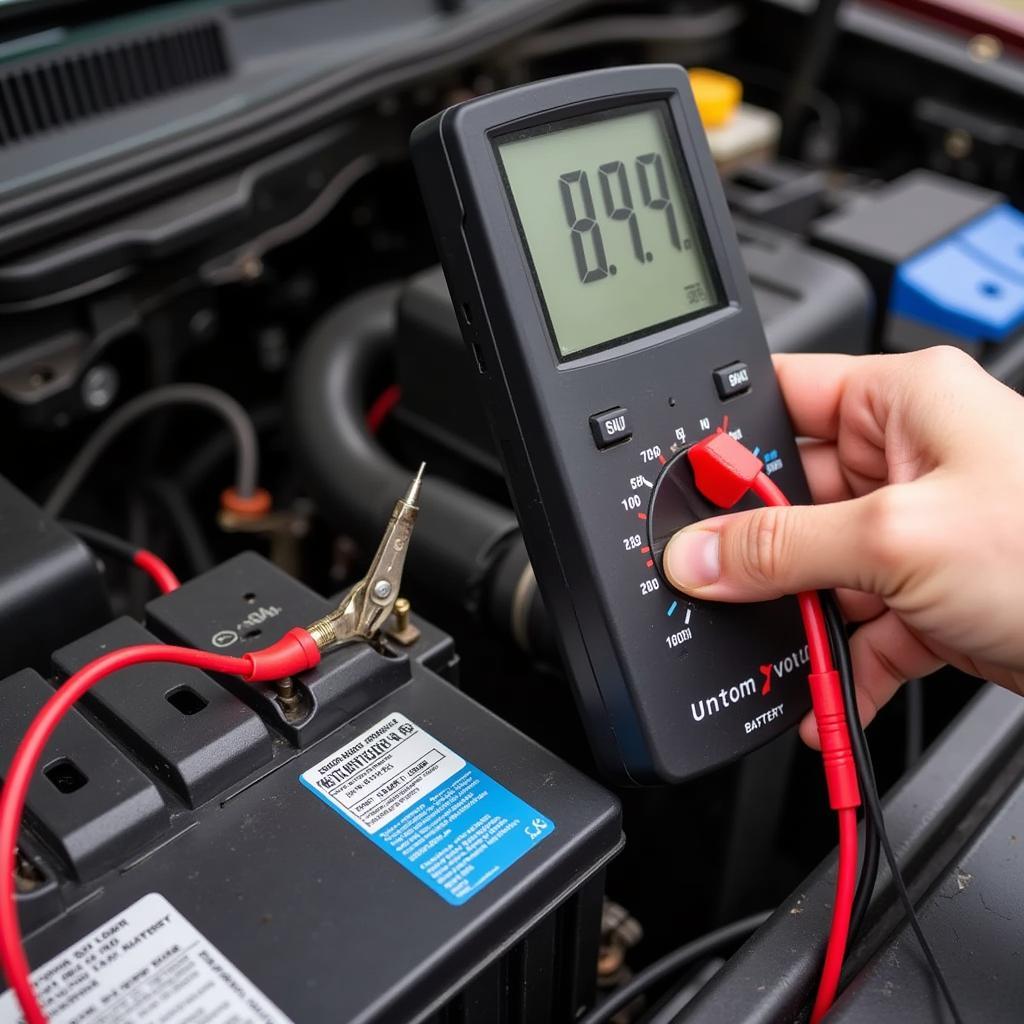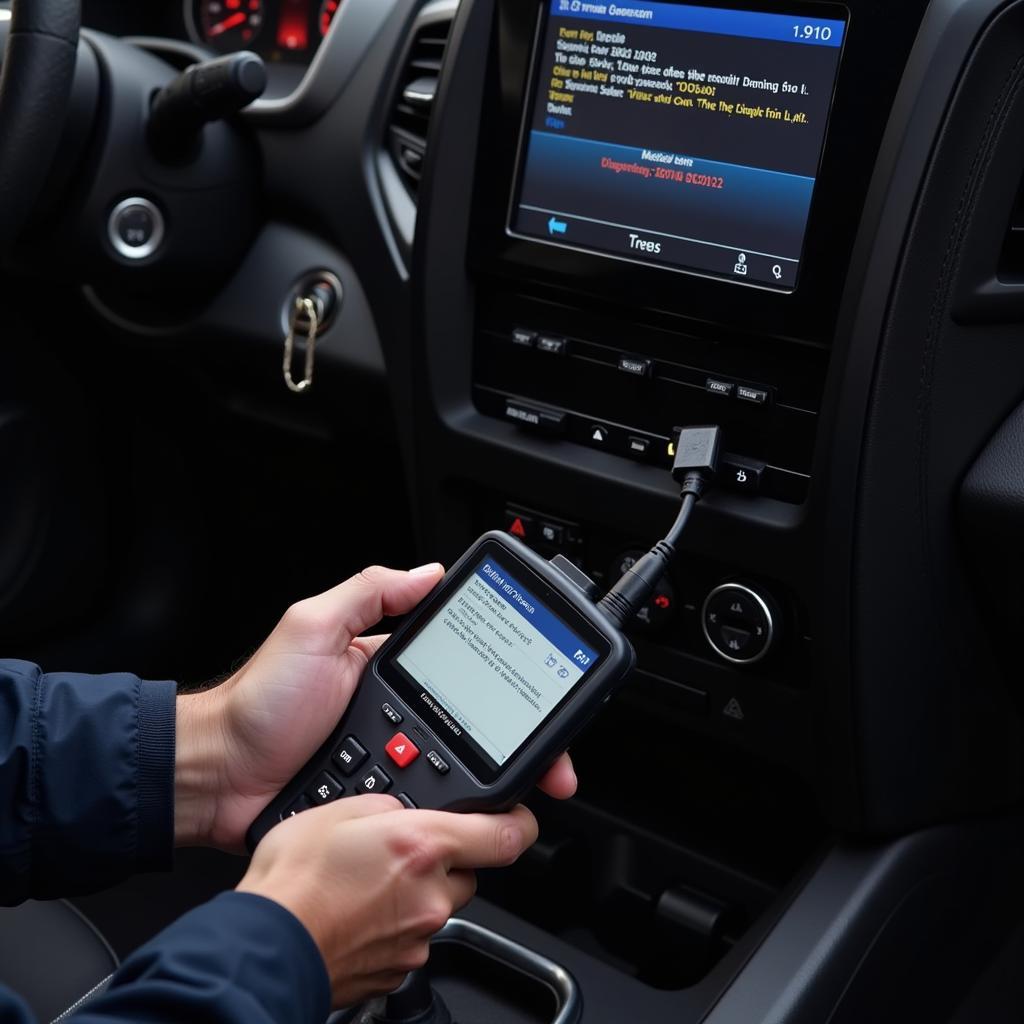Faye Foxwell Vancouver isn’t a person or a company, but a search query that likely points to a need for automotive electrical expertise in Vancouver. Are you struggling with electrical gremlins in your car? From flickering lights and faulty sensors to complete electrical system failures, diagnosing and repairing these issues can be a real headache. This article aims to provide car owners, repair shop owners, and automotive technicians with the knowledge and resources to tackle these challenges effectively.
Understanding the Importance of Automotive Electrical Systems
Modern vehicles are increasingly reliant on complex electrical systems. Everything from the engine control unit (ECU) to the infotainment system depends on a flawlessly functioning electrical network. A seemingly small issue, like a corroded terminal, can have cascading effects, impacting multiple systems and leading to costly repairs.
Understanding the basic principles of automotive electricity is crucial for effective troubleshooting. This includes knowledge of voltage, current, resistance, and how these factors interact within various circuits. Whether you’re a DIY enthusiast or a seasoned professional, a solid grasp of these fundamentals is essential.
Common Automotive Electrical Problems and Solutions
Many electrical issues manifest as intermittent problems, making diagnosis particularly challenging. A loose connection might cause a problem only when the car hits a bump, while a failing sensor might only act up under specific temperature conditions.
Some common electrical problems include:
- Starting problems: A dead battery, faulty starter motor, or corroded connections can prevent the engine from cranking.
- Dim or flickering lights: This could indicate a failing alternator, a bad ground connection, or a problem with the wiring harness.
- Malfunctioning sensors: Faulty sensors can trigger warning lights, affect engine performance, and even disable safety systems.
- Electrical system shorts and open circuits: These can cause a wide range of problems, from blown fuses to complete system failures.
When troubleshooting these issues, a systematic approach is essential. Start by checking the battery voltage and connections. Then, inspect fuses and relays for any signs of damage. If these checks don’t reveal the problem, more advanced diagnostic tools, such as a multimeter or a scan tool, may be necessary.
 Using a Multimeter to Check Car Battery
Using a Multimeter to Check Car Battery
Faye Foxwell Vancouver: The Need for Expert Diagnostics
While basic troubleshooting can be done at home, complex electrical problems often require the expertise of a qualified technician. Searching for “Faye Foxwell Vancouver” suggests a desire for professional help in the Vancouver area. Finding a reputable auto electrician with experience in diagnosing and repairing complex electrical issues is crucial. They can utilize advanced diagnostic equipment and their knowledge of specific vehicle systems to pinpoint the root cause of the problem efficiently.
“A proper diagnosis is the key to a successful repair,” says John Smith, a veteran automotive electrician with over 20 years of experience. “Throwing parts at the problem without a thorough understanding of the electrical system can lead to wasted time and money.”
Leveraging Diagnostic Tools and Software
Modern diagnostic tools and software have revolutionized automotive electrical repair. Scan tools allow technicians to access the vehicle’s onboard computer and retrieve diagnostic trouble codes (DTCs). These codes provide valuable clues about the nature and location of the fault.
Furthermore, specialized software can provide detailed wiring diagrams, component locations, and troubleshooting guides. These resources are invaluable for efficiently diagnosing and repairing complex electrical issues. Investing in quality diagnostic tools and software is essential for any automotive repair shop or technician serious about providing top-notch service.
 Automotive Diagnostic Scan Tool in Use
Automotive Diagnostic Scan Tool in Use
Preventative Maintenance for Automotive Electrical Systems
Regular maintenance can help prevent many electrical problems before they occur. This includes:
- Inspecting and cleaning battery terminals
- Checking and replacing worn or damaged wiring
- Testing the alternator and starter motor
- Keeping the electrical system clean and free of debris
“Preventative maintenance is like an insurance policy for your car’s electrical system,” says Jane Doe, a certified automotive technician. “By taking a few simple steps, you can avoid costly repairs and ensure the reliability of your vehicle.”
Conclusion: Faye Foxwell Vancouver and the Future of Automotive Electrical Repair
The increasing complexity of automotive electrical systems necessitates a deeper understanding of diagnostics and repair techniques. While searching for “Faye Foxwell Vancouver” might not lead you to a specific person, it highlights the growing demand for specialized automotive electrical expertise in the Vancouver area. By staying informed about the latest technologies and best practices, car owners, repair shop owners, and automotive technicians can effectively navigate the challenges of modern vehicle electrical systems. Connect with ScanToolUS at +1 (641) 206-8880 or visit our office at 1615 S Laramie Ave, Cicero, IL 60804, USA for support.
FAQ
- What are the most common signs of a failing alternator?
- How can I test my car battery at home?
- What should I do if my car won’t start?
- How can I prevent corrosion on my battery terminals?
- What is a diagnostic trouble code (DTC)?
- What are the benefits of using a professional scan tool?
- How often should I have my car’s electrical system inspected?

